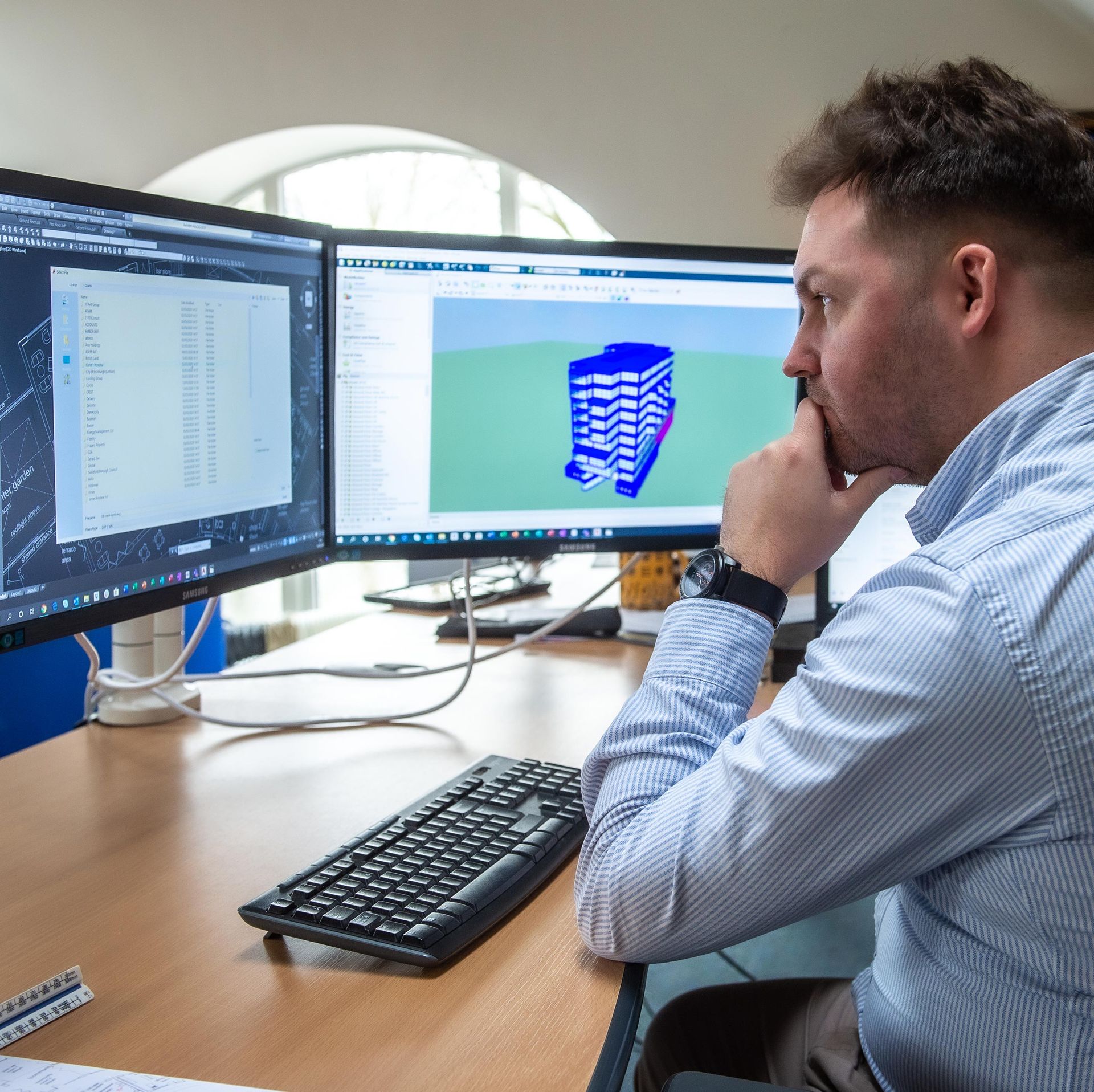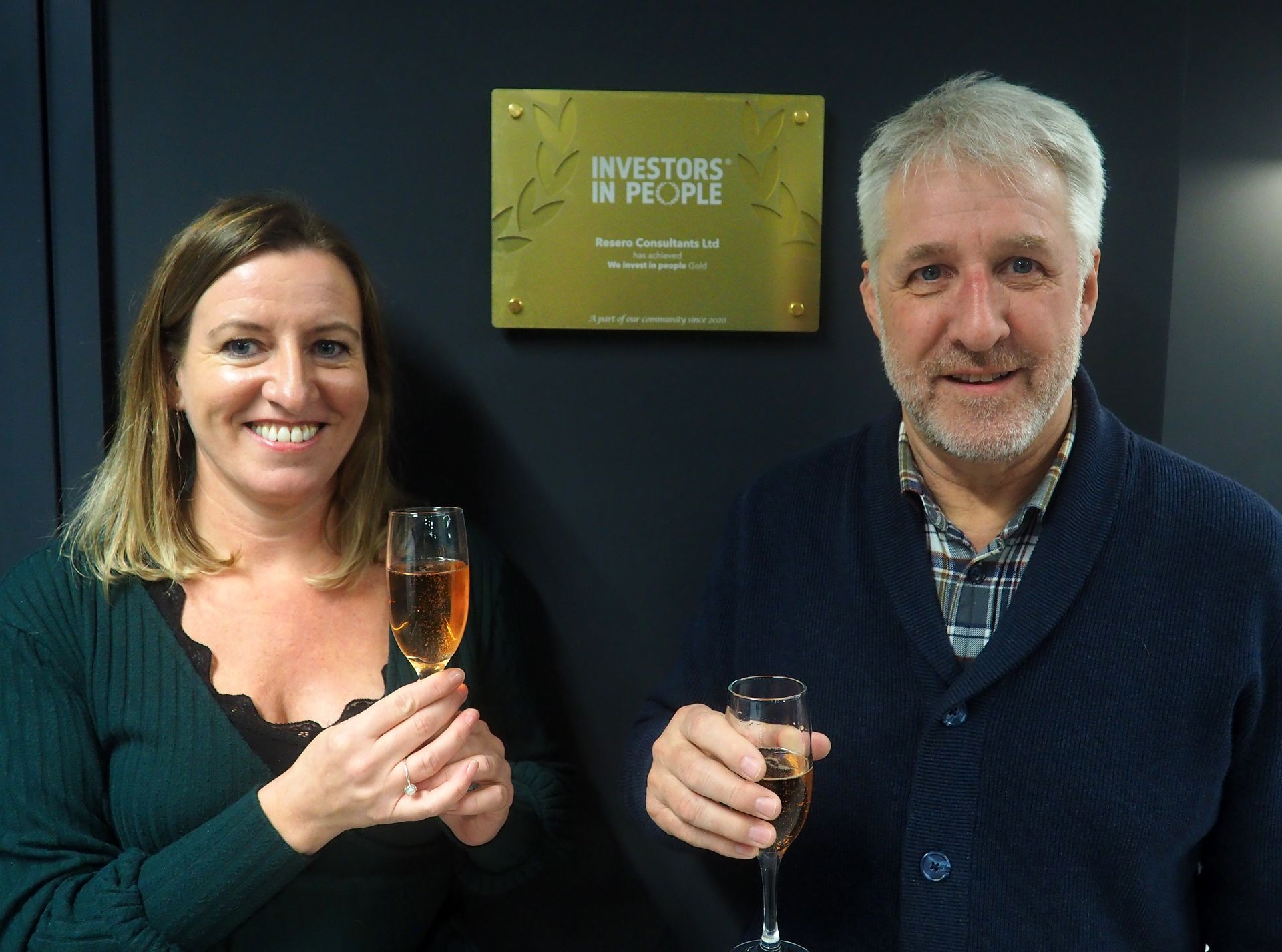Why our recruits from the armed forces are such an asset to resero
Career changes can be challenging, particularly for those leaving our armed forces and looking for civilian work.
However, here at resero, we have found ex-forces employees have brought to the team some invaluable attributes including a strong work ethic, key engineering skills, a willingness to learn and adapt alongside a sense of camaraderie that fits well with our company culture.
We spoke with two of our ex-forces employees from the Technical Asset Management team, Natalie Aixill and Peter Hull, to ask them what their journey from joining the armed forces to working with resero has been like and how the skills learned in their time serving has helped them.
Talk me through your career journey - why did you want to join the armed forces and when?
Natalie: Growing up in Cornwall I was always surrounded by military connections. I visited family on army bases throughout my childhood and had ancestors who served in both WW1 and WW2. The girls at school all wanted to do hair and beauty or childcare but that didn’t feel right for me. The opportunities the Army offered, around travel and paying for me to achieve education qualifications rather than accumulating student debt, made it an attractive option.
Peter: I never had any intention of joining the armed forces when I was growing up. Unfortunately, I didn’t pay attention at school and didn’t do very well. So, when I was 16 my dad, who was an army veteran, took me to the armed forces careers office. I completed the psychometric test for the Army and was offered the roles of rifleman, tank driver and chef. None of these interested me, so instead I got a role with my older brother as a labourer for a roofing company.
I spent five years with the company and ended up in the role of supervisor before I really started thinking seriously about prospects and the roles I wanted in the future. That’s when I went to the armed forces careers office for a second time – this time to join the Royal Navy. I’d been inspired by a friend of mine who had told me about his time travelling the world on submarines. I was offered a few roles and chose Weapons Engineer onboard submarines.
What were the highlights of service?
Natalie: My highlights were travelling the world and getting taught how to ski, kayak and canoe - all whilst building lifelong friendships.
Peter: The highlight I was hoping for was to travel the world but in 12+ years of service I only spent 12 days in Florida and even then I was on 12 hour shifts. The real highlight ended up being the friends I made. Even though we now live hours away from each other, we always make time to meet up.
And the biggest challenges?
Natalie: Initially the biggest challenges were the operational tours to Iraq and keeping on top of fitness and physical tests. But I found the toughest challenge was when I became a parent and had to juggle military life with home life.
Peter: I initially struggled with the decrease in pay and going from weekly to monthly wages. My partner at the time had encouraged me to join the Royal Navy but we split up about six months later. It can be a real struggle to maintain relationships when you’re always hundreds of miles apart, often with no way of communicating. This becomes even more intense when you have children.
Why did you decide to leave?
Natalie: I originally left for a space of four years to raise my two boys the best way I could. When they went to nursery I re-joined and did another three years until I sustained a serious injury which meant I had to be medically discharged.
Peter: My last patrol lasted 132 days underwater. I missed my partner and children so much during this time that when I returned I decided it was the right time to find a new challenge closer to home.

What was the most challenging part of transitioning out of the armed forces?
Natalie: The fact there was no longer any job security or benefits. The work ethics were different in my new job and the sense of humour was hard to adjust to.
Peter: The challenge for me, and I think for most service leavers, is understanding what our skills are and how we convert them to civilian understanding. I didn’t want to waste any of the funding for training only to then change sectors again. Luckily my first role after leaving was alongside another veteran which really helped. Having to change role only a year and half later was scary with a family dependent on me.
Any tips for others considering doing it?
Natalie: Take any course available to you and try to use as much of the excellent education services and funding you can.
Peter: My biggest tip for leavers is think big! You don’t understand how valuable and sought after the skills learned in the armed forces are. Also plan early. Reach out to individuals that have left and already completed the process. It will help your decision making so you can maximise your training decisions and create effective job applications and CVs.
How have you found civilian working life with resero?
Natalie: Working with resero has been great. The sense of humour and social side of the company are very similar to the military. The company summer function was a team building day kayaking on the river and there’s a black-tie event scheduled in for our Christmas function. The working environment is more relaxed and I do feel I’ve now achieved the work-life balance I was after. Education and training is at the forefront of resero's agenda. Within my first six months I'd already completed a Mental Health course and am currently on a FGas course. I’ve got another two engineering specific courses programmed in for the near future.
Peter: I did find it a little strange to begin with as there’s a lot of homeworking which was a bit of a culture shock even after the pandemic. But having a designated office space will help with this which is coming soon. I would absolutely say resero has been a positive place to work. I have had great support from everyone within the company throughout my first year and have been able to give the same to others. I really appreciate the ‘no-stupid question’ mentality here.
What is your role at reser and how is it different to your previous work?
Natalie: I’m in the technical asset management team working as an engineering consultant. My main role is to audit contractor performance across a portfolio of complex, commercial buildings and provide technical support and expertise to a range of stakeholders such as the contractors, facilities managers and asset managers.
I like that it allows me to travel to various cities and meet lots of people. It is definitely a steep learning curve from my previous role as an Electronics Technician fixing armoured vehicles and radars and managing soldiers, but the support is there to help me succeed.
Peter: My role is similar to Natalie’s. We audit mechanical and electrical service providers in large, commercial buildings ensuring maintenance is completed according to the contracts in place and relevant legislation. I also have to vet quotes from contractors ensuring they are accurate and priced fairly. Probably the biggest difference between this role and working in the Royal Navy is budgeting. The cost to repair or replace anything within my role as Engineering Supervisor onboard submarines was never questioned, with majority of items reaching 100k+. So, gaining an understanding of budgeting around quotations and building management was a new skill for me. Another was adapting to working from home. It hasn’t been without its challenges but the big positive is it allows me more family time – I’m able to take my children to school for example.
What are your hopes for your future career and how do you think this work will help you achieve it?
Natalie: I would like to become an appointed person for the company, in the expansion of our delivery, supply and project management of sustainable energy sources, solar and wind, also to expand our recruitment facility by attending recruitment fairs and roadshows.
Peter: I never gained any qualifications from school and only developed these within the Royal Navy. But now I want to take it further and complete a degree in engineering. I have already discussed this with management and have been encouraged by the offer of funding and protected time to attend campus. I think I would struggle to receive such support and assistance from other employers.
If you have engineering experience and are looking for a career outside of the armed forces do get in touch. Resero operates an ‘always on’ recruitment policy. If we have no roles instantly available we are happy to keep your details on file and can offer shadowing days for you to get a feel for the type of work we do until we have a role available. Click here for
our current positions available.












